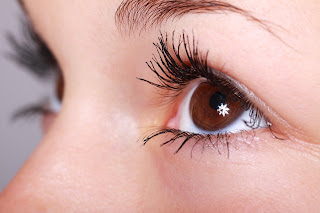How to Keep Your Eyes Healthy 2022
Do not take your eyes for granted. Take these easy actions to maintain your peepers healthy and balanced.
1. Consume Well
Great eye health and wellness starts with the food on your plate. Nutrients such as omega-3 fatty acids, lutein, zinc, and vitamins C and E might help fend off age-related vision problems such as macular deterioration and cataracts. To obtain them, fill your plate with:
- Green leafed veggies such as spinach, kale, and collards
- Salmon, tuna, and various other oily fish
- Eggs, nuts, beans, and various other nonmeat healthy protein resources
- Oranges and various other citrus fruits or juices
- Oysters and pork
A well-balanced diet also helps you remain at a healthy and balanced weight. That reduces your chances of weight problems and related illness such as kind 2 diabetes, which is the prominent reason for loss of sight in grownups.
2. Quit Cigarette smoking cigarettes
It makes you more most likely to obtain cataracts, damage for your optic nerve, and macular deterioration, amongst many various other clinical problems. If you've attempted to kick the practice before just to begin again, maintained at it. The more times you attempt to quit, the more most likely you're to succeed. Ask your doctor for help.
3. Wear Sunglasses
The right set of tones will help protect your eyes from the sun's ultraviolet (UV) rays. Too a lot UV direct exposure boosts your chances of cataracts and macular deterioration.
Choose a set that obstructs 99% to 100% of UVA and UVB rays. Wraparound lenses help protect your eyes from the side. Polarized lenses decrease glow while you own, but do not always offer included protection.
If you wear contact lenses, some offer UV protection. It is still a smart idea to wear sunglasses for an extra layer.
4. Use Safety Eyeglasses
If you use dangerous or air-borne products at work or in your home, wear shatterproof glass or safety safety glasses.
Sporting activities such as ice hockey, racquetball, and lacrosse can also lead to eye injury. Wear eye protection. Safety headgears with safety face masks or sporting activities safety glasses with polycarbonate lenses will shield your eyes.
5. Appearance Away From the Computer system Screen
Looking at a computer system or telephone screen for too lengthy can cause:
- Eyestrain
- Blurred vision
- Difficulty concentrating at a range
- Dry eyes
- Migraines
- Neck, back, and shoulder discomfort
To protect your eyes:
- Make certain your glasses or get in touches with prescription depends on day and great for looking at a computer system screen.
- If your eye strain will not disappear, talk for your doctor about computer system glasses.
- Move the screen so your eyes are degree with the top of the monitor. That allows you appearance slightly down at the screen.
- Attempt to avoid glow from home windows and lights. Use an anti-glare screen if needed.
- Choose a comfy, helpful chair. Position it so that the feet are level on the flooring.
- If your eyes are dry, blink more or try using artificial splits.
- Rest your eyes every 20 mins. Appearance 20 feet away for 20 secs. Stand up at the very least every 2 hrs and take a 15-minute damage.
6. Visit Your Eye Doctor Regularly
Everybody needs a routine eye exam, also children. It helps protect your view and allows you see your best.
Eye examinations can also find illness, such as glaucoma, that have no signs. It is important to spot them at an early stage, when they're easier to treat.
Depending upon your eye health and wellness needs, you can see a couple of kinds of doctors:
Ophthalmologists are clinical doctors that focus on eye treatment. They can provide basic eye treatment, treat eye illness, and perform eye surgical treatment.
Optometrists have had 4 years of specific educating after university. They provide basic eye treatment and can identify and treat most eye illness. They do not do eye surgical treatment.
An extensive eye exam might consist of:
- Discussing your individual and family clinical background
- Vision tests to see if you are nearsighted, farsighted, have an astigmatism (a rounded cornea that obscures vision), or presbyopia (age-related vision changes)
- Tests to see how well your eyes collaborate
- Eye stress and optic nerve tests to look for glaucoma
- External and tiny evaluation of your eyes before and after dilation
- You might also need various other tests.
